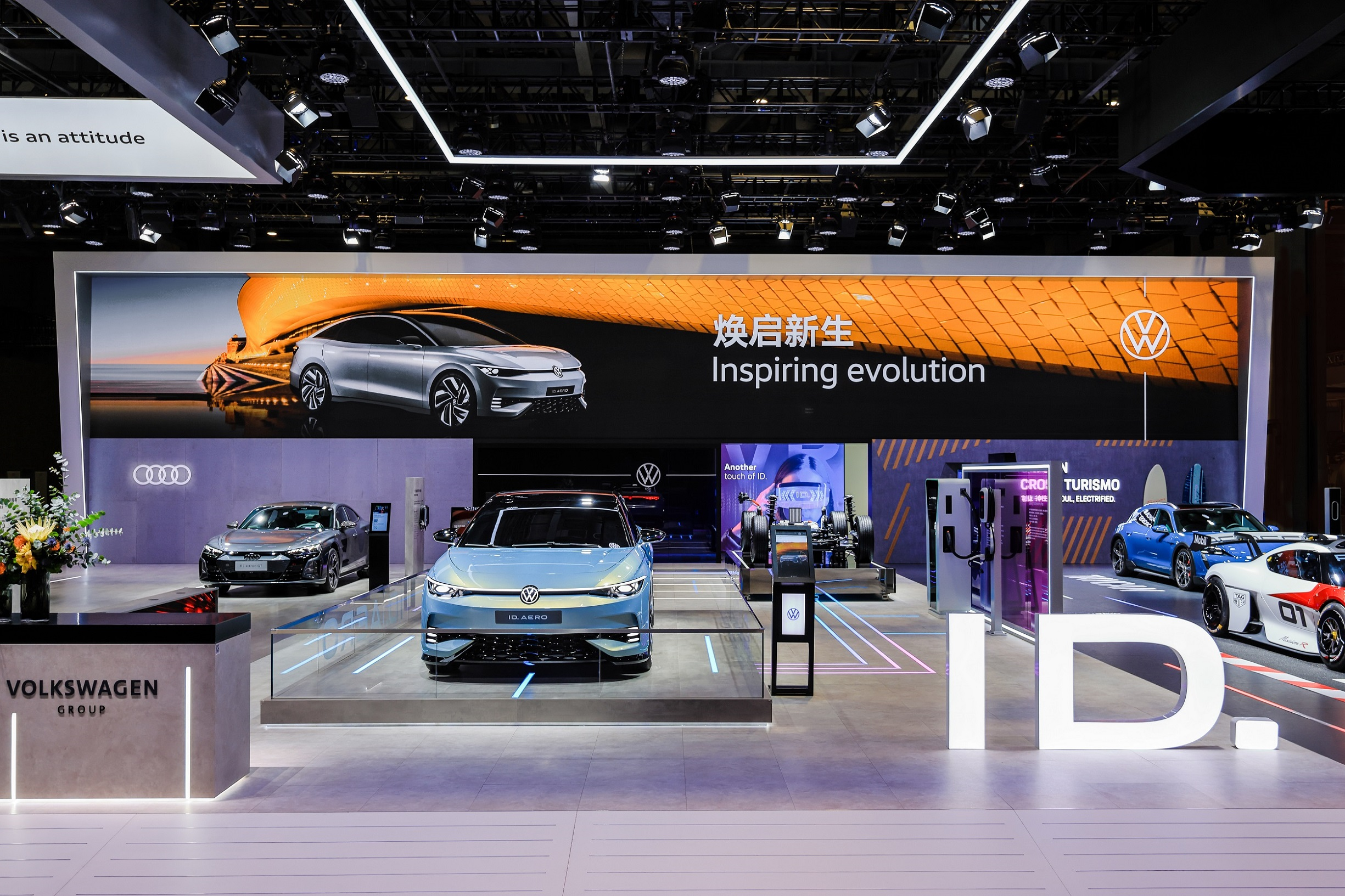Writing | Charles
Editing | Zhou Changxian
“Do you have faith in CARIAD?” A senior executive at Volkswagen China asked me thoughtfully on November 5th at the Volkswagen Group (China) booth during the Fifth China International Import Expo. I didn’t give a direct answer, but instead quoted a phrase from CARIAD’s CEO Chang Qing, “We can only do well, not mediocre.”
To some extent, CARIAD, which was founded in July 2020, is the “soul” of Volkswagen in the era of electrification. It is not only related to whether Volkswagen can transform from a traditional automotive company to a software-driven enterprise, but also to its future prospects in the Chinese and global markets.
As we all know, the former CEO of Volkswagen Group, Diess, handed over control of the Volkswagen brand and sacrificed control over the Chinese market for control over CARIAD. However, things did not go as planned, and CARIAD ultimately became one of the main reasons for Diess’s failure.
Due to the delayed R&D progress of CARIAD, the release dates of models such as the Porsche Macan EV and Audi Q6 e-tron were postponed from 2023 to 2024. The flagship new car under the Audi Artemis project had to be postponed for three years until 2027.
On September 1st, with the new CEO Oliver Blume taking office, people worried that there would be changes in the group’s strategic position and planning for CARIAD, and that the strategic deployment of CARIAD’s Chinese subsidiary, which had only been established in April of this year, would be adjusted.At this year’s CIIE, Volkswagen showcased its grand vision for transitioning to electrification and intelligence with the theme of “Digitization, Sustainability, and Innovation”. Meanwhile, CARIAD, its software subsidiary, unveiled “Neon”, a brand new innovative software application that showcases the sustainable R&D capabilities brought by the unified and scalable operating system VW.OS.
To showcase CARIAD’s progress in China, Chang Qing and CTO Sun Wei were interviewed by media such as “Mobility 100 / AutocarMax” during the CIIE to respond to relevant questions.
Chang Qing joined the Volkswagen Group in 1990 and worked in vehicle measurement and analysis and chassis development at the group’s headquarters in Wolfsburg, Germany. He has also served as the head of multiple areas such as product cost optimization and competitor research, and compact vehicle development. From 2018 to 2020, Chang Qing was responsible for planning and establishing the product sequence of the group’s E3 electronic and electrical architecture, and promoting the Volkswagen Group’s transformation into a software-driven company.
As one of the co-founders of CARIAD, Chang Qing was responsible for product and project management at CARIAD’s headquarters in Germany from 2020 to 2021, and served as the Chief Operating Officer of Yijia Intelligence since July 2021, later promoted to Chief Executive Officer.
Before joining Volkswagen Group China, Dr. Sun Wei worked at IBM China Research Institute for 16 years and accumulated rich industry experience in software development and intelligent transportation. In 2017, he joined Volkswagen Group (China) as Senior Director of Intelligent Mobility R&D Department, and is now the Chief Technology Officer of Yijia Intelligence, responsible for the operation and planning of the company’s overall products and technology roadmap.If you pay attention to the resumes of the two executives, you will find that for entrepreneurial companies, they are a very complementary and perfect match. Wang Changqing is well-versed in hardware, strategic planning, and the German market, while Sun Wei excels in software, technology R&D, and the Chinese market.
However, in the face of the rising stars such as Wei Xiaoli, currently, multinational car companies in Europe, America, and Japan have little advantage in intelligentization, and they are also facing many problems such as organizational restructuring, development process reengineering, and lack of software talents. Not to mention, there are also problems with communication, coordination, and even gamesmanship with the headquarters.
For CARIAD China, thanks to Diess’s foresight, although the above-mentioned problems have been solved at the strategic level, in terms of specific operations, it still needs to accumulate experience and further hone the team through hard battles.
Moreover, CARIAD China’s business layout covers six major areas, each of which is a tough nut to crack, and its business targets not only include luxury brands such as Porsche and Audi but also include Volkswagen brand. Which of the six major areas is more important and which comes first, and whether these brands can be satisfied with it and whether consumers can be satisfied, are all issues that the Changqing team cannot avoid.
CARIAD CEO Dirk Hilgenberg once said, “Transformation is a positive process, but there will also be a lot of friction, and it can even be said that in our transformation, 20% is technical challenges, and 80% is changes in corporate spirit and culture.”
This sentence is very clear. Behind the clarity, there is also a deep chill.
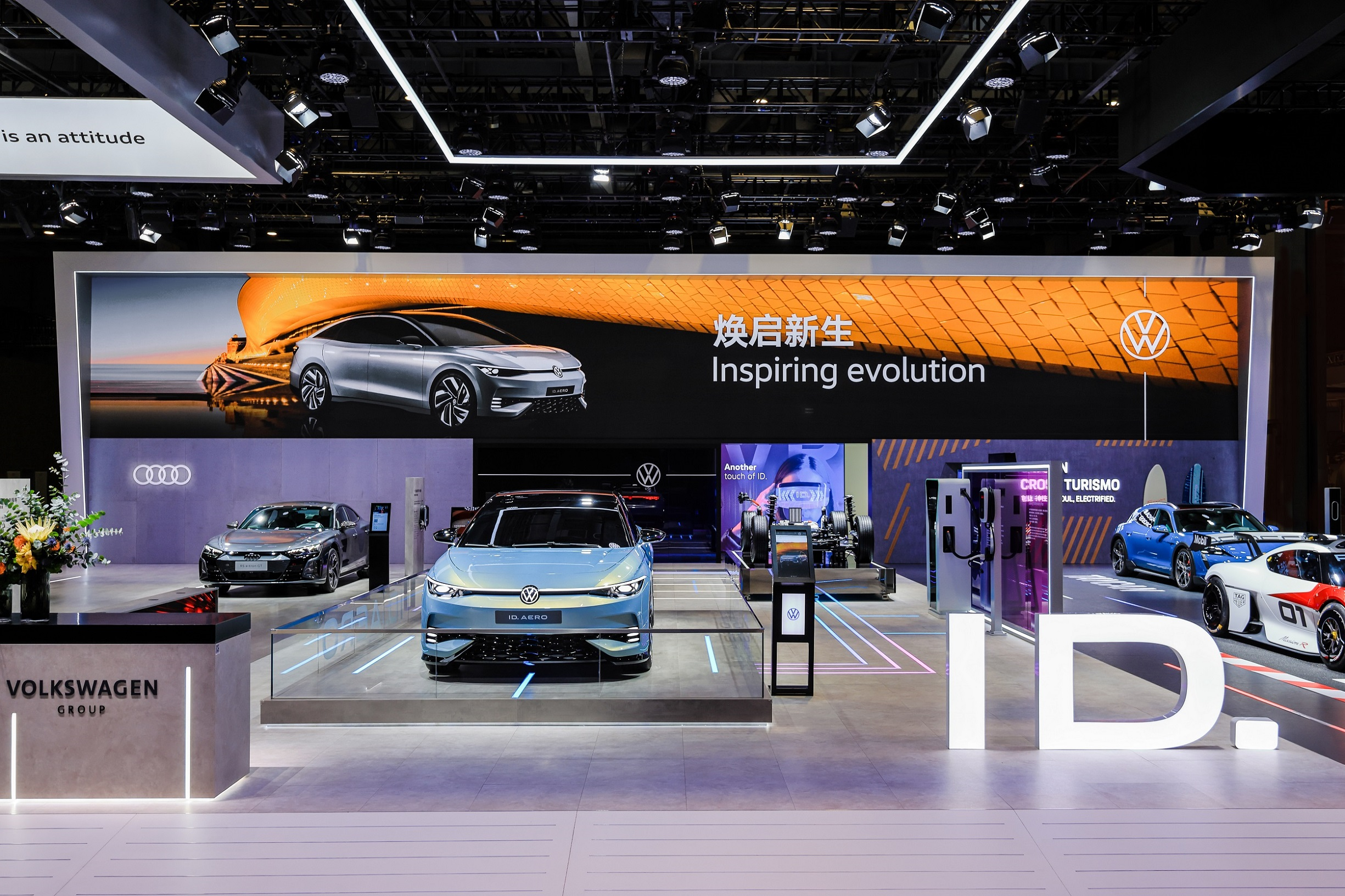
The following is a shorthand of the interview, with some deletions and additions.
CARIAD China has considerable autonomy.
Media: In March 2019, Volkswagen announced its transformation to a “software-driven” company. CARIAD, founded in July 2020, can be said to be a very important organization born in the transformation of Volkswagen. What is its positioning and role in the Volkswagen Group?
Chang Qing: In 2015, Volkswagen decided to establish the MEB platform, which is now the basic platform of the ID. family. Volkswagen was the first international company in the world to make this decision. When we established this platform, we thought that there were no engines, no gearboxes, and everything was electric. This provided a prerequisite for the development of software-defined cars. At that time, we had already discovered that the electronic framework would be very important in the future, so we started to work on this from three internal companies: Volkswagen, FAW, and Porsche. However, after two or three years of development, we realized that we needed a unified and scalable development to truly utilize the production advantages of the Volkswagen brand.
We now have three platforms: the MEB, ID. family, and PB software platform, and we will continue to work on scalability in the future. Based on the situation at that time, Volkswagen made the decision to establish a subsidiary that is software-led and promotes digital development as the future development direction. Therefore, CARIAD was established, and all experienced and capable engineers from Volkswagen, Audi, and Porsche were brought together to work on overall development for the group.
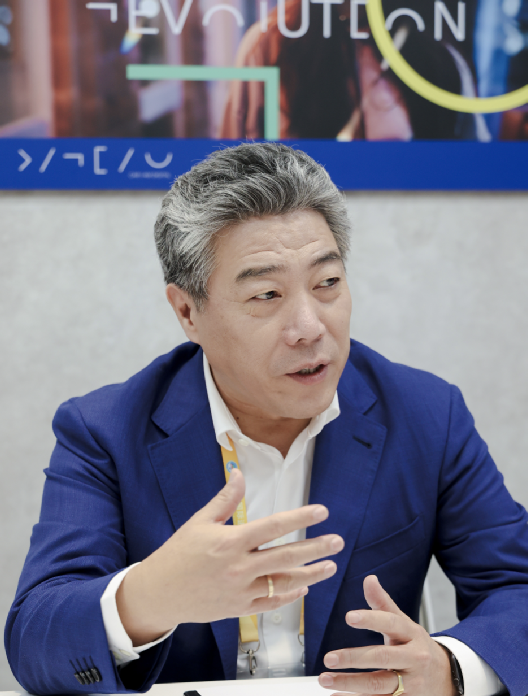
Media: What is the positioning of CARIAD’s China subsidiary within the group, and what is its role in Volkswagen Group (China)? What will be its future scale and what kind of role will it play?Chang Qing: The acceleration of electrification transformation has increased the speed of product iteration. As the iteration frequency increases, consumers expect car companies to meet their personalized needs. We need to develop products targeted at different market’s consumer demands. For example, the sound system can be made only in China because Chinese customers have this need, which German customers may not have. Today’s Rainbow Project can recommend different color services based on dressing, which Chinese consumers appreciate, but there may not be such demand in Europe. Therefore, Volkswagen believes that CARIAD’s products developed with global experience in Germany may not necessarily meet the needs of the Chinese market, which has been making the fastest and most effective upgrades and iterations. For the past years, China’s automotive industry has developed very rapidly, and China also leads the world in electronic technology.
After the establishment of the headquarters, the CARIA’s first subsidiary was established in China as a joint venture under the Volkswagen Group, including FAW-Volkswagen, SAIC-Volkswagen, Volkswagen Anhui, PPA, Audi, and various software centers of group-owned brands. The Volkswagen Group has many brands in China, and many loyal customers, among whom the new generation of customers have needs in the Internet, gaming, and other areas. Therefore, the establishment of CARIA China subsidiary will develop products based on the demands of Chinese market and customers, and jointly develop products for localization. In the past, localization was first launched in Germany before being launched in China. The future task is to develop products jointly. For example, the E3 platform has been involved by Dr. Sun’s team and is jointly developed with the headquarters.
This is the main goal of Chinese CARIAD, which is to jointly develop products needed for the Chinese market with the headquarters, and to enter the Chinese market as quickly as possible, to develop products first and then localize them. In terms of iteration and upgrading, we can quickly respond to the demands of the Chinese market. We will work together with the various brands and joint ventures of the group in China to jointly develop and apply technology, thus forming a synergistic effect.Media: If CARIAD’s Chinese subsidiary captures unique demands from Chinese consumers that differ from those in Europe, will decisions related to the Chinese market be made by the Chinese subsidiary, or will they need to be approved by Volkswagen’s headquarters?
Changqing: I’ll answer this question in two parts. Many things require quick decision making, while decisions made by international groups may be slower, as many aspects need to be considered. We have now reached an agreement with the headquarters and obtained approval. If we need to improve products involving electronic frameworks, platforms, or modules that are shared worldwide, we will consult with the headquarters to make improvements. If some products do not involve these areas, we, as the Chinese subsidiary, will make the decisions ourselves.
Sun Wei: For projects like Rainbow and Neon, we can continuously innovate on our own. However, if we need to rebuild the underlying hardware, we need the international team’s cooperation.
Changqing: We also communicate with the Volkswagen Group on this matter, and they know our work. Some things will also be considered if they can be implemented in Germany. But in the process of implementation, some things can be done more quickly in China. Now we are introducing a concept called “Chinese Speed” at Volkswagen.
Media: How far-reaching is the autonomy of CARIAD’s Chinese subsidiary? After the CEO of Volkswagen adjusts the company’s planning, what impact and changes will there be on the company’s planning, particularly for the Chinese subsidiary?
Changqing: As the company develops, the degree of autonomy may change. Our company was just founded and was officially announced in April of this year. Starting in 2023, after consulting with Volkswagen, the Chinese team will have the autonomy to manage the budget and carry out independent development and application in China, including the use of local suppliers and technology capabilities, to build a stronger and more independent Chinese team. Currently, China and foreign countries are forming two separate ecosystems, and these two systems do not intersect.I think the main task for the Chinese team in the future is to focus on the domestic ecosystem and services, while the international team is responsible for the international ecosystem. In addition, the universal technology platform is also a major advantage for Volkswagen due to its economies of scale. We cannot independently develop our own products without relation to other aspects, otherwise we would lose the ability to compete on a large scale and product competitiveness.
In terms of capital, all financing, joint ventures and investments are decided by Volkswagen headquarters, even for regional investments. Although the strategic investment in Horizon Robotics was initiated by us, it was ultimately approved by the Volkswagen Group Supervisory Board.
Moreover, the change of CEO at the group level has no impact on CARIAD’s China company. We have already reported to the new China leader on our strategic plan, which has been recognized and will continue to be executed.
As for personnel management, we have decision-making power locally. Currently, there are four members on the board of directors of CARIAD’s China subsidiary, one is the CTO in charge of development, and the other three are myself as CEO, as well as the CFO and CHRO (chief human resources officer). However, when it comes to personnel expansion, such as hiring 1200 people next year, we need to communicate with headquarters regarding the technical backgrounds and what kind of technical products to develop, as it also involves cost issues. Ultimately, we are the ones who decide who to hire and what expertise is needed.
Media: Some media reported that the former Huawei employee, Jing Su, has joined CARIAD, is that true?
Changqing: I also heard about this rumor, but it’s not true.
Can only do well, not do poorly
Media: What is the current R&D focus of CARIAD’s China subsidiary?Changqing: In China, we are committed to “develop in China, innovate for China” with a focus on user experience and market demand in six key areas, including user experience, user interaction, advanced driver assistance systems and autonomous driving, vehicle and system integration, data processing, and hardware design and adaptation. This is to ensure that we have unique products that meet the expectations of Chinese customers in China.
Sun Wei: In terms of relatively important areas, the two areas that are closer to users are intelligent cockpit and intelligent driving (advanced driver assistance and autonomous driving). These two areas are also the two largest areas of personnel density for us.
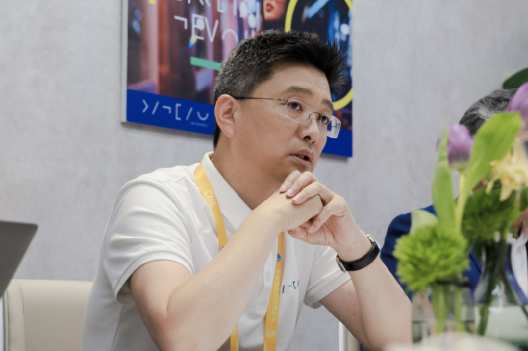
Regarding the intelligent cockpit, we have started to gradually upgrade and iterate the software functions of the current ID. series of MEB vehicles, and with the Aero B, the new HMI of the intelligent cockpit will be launched for the upcoming ID. sedan in the second half of next year.
Previously, the HMI development of Volkswagen Audi’s cars was done entirely overseas. This is the first time the HMI development of a Volkswagen model is done in China by CARIAD’s subsidiary in China. In addition to the HMI, there are a series of functions, including Project Rainbow, intelligent light language, and games, which will be launched as highlights of the Aero B series.
This is a relatively important milestone, and we will continue to iterate on the product going forward. We have already formulated the product planning for 2025 and 2026. The relatively important milestones include LB next year and Volkswagen Anhui’s brand-new models in 2025, all of which are in the process of comprehensive development.# Focus on Intelligent Driving
We are supporting Porsche and Audi in the development of their new PPE (Premium Platform Electric) products, which are set to be launched in 2024 and 2025 respectively. Our aim is to help these brands develop L2+ level ADAS systems. This project is currently in full swing and is planned to be released to the market in 2024, along with the PPE models from Porsche and Audi.
Alongside these two key areas, we are also working extensively in other fields. For example, we have established a new cloud-based service called the “car data collector”, which will collect real-time data from the hundreds of sensors in Volkswagen cars. The platform and software for managing the collected data are 100% independently developed in China.
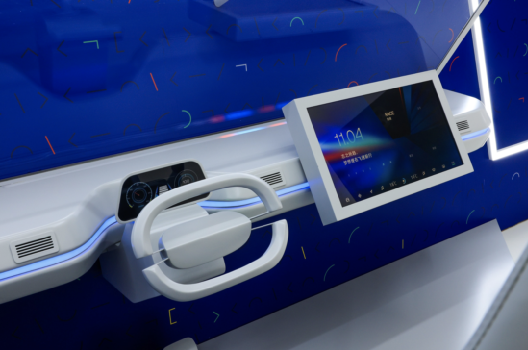
Regarding hardware, we are developing a range of related technologies, including collaboration with Horizon Robotics on ECU chip technology for autonomous driving, intelligent cabin cameras, and next-generation hardware for intelligent cabins, all of which are currently in the planning process. Our goal is to have new locally developed engines for our cars ready by 2025-2026.
Media: What are the areas that need improvement in the software or smart solutions for the ID series products? What are the common issues among consumers’ feedback for the cars that have already hit the market, and what specific measures will you take to address them?
Sun Wei: The sales of our ID. series cars are currently increasing, ranking second among foreign brands. Although there are many strong products by local new carmakers, as a foreign brand, we are accelerating our development process. I can discuss several key areas that we are currently planning and working on.The first point is HMI (Human-Machine Interface). In the current ID. series, the design and development of HMI follow the European style. However, the Chinese ID. series was adapted to localized requirements, which means that the design style for HMI is different from the ones used by local consumers. This is an area that can be improved upon. As previously mentioned, new and original HMI concepts for the Aero B are being developed by a local Chinese team, and this is where we can focus our efforts for improvement.
The second point is the connection between vehicle functions and applications that are more popular among Chinese consumers. In the concept of “OIC,” there is a “C” which stands for “Car Connectedness.” Currently, the applications in the intelligent cockpit include music, navigation, karaoke, and online radio. Although partially integrated with the car’s existing capabilities, the integration is still not sufficient and needs to be strengthened. For example, if we introduce apps like Himalaya and Kuwo music, there will be no significant difference from other vehicles. Our current focus is on how to fully integrate the vehicle’s capabilities with the intelligent cockpit applications. The Rainbow and Neon projects mentioned earlier are both developed along this line of thinking: fully tapping into the various capabilities of the lights, air conditioning, seats, and body of the car to provide consumers with different atmospheres.
The third point is the innovation and creativity of new and unique features that young Chinese consumers like. There is a continuous stream of new features being introduced for new energy vehicles that cater to the preferences of young Chinese consumers. This is an area where we need to further strengthen ourselves. We are constantly accumulating innovative projects within our organization and plan to continue introducing them starting next year. For example, as previously mentioned, games are not yet available on the ID series. However, starting from the first half of next year, software updates and new software releases will include car games and a series of other functions.In summary, we have made arrangements in these three aspects: firstly, making HMI conform to the usage habits and preferences of Chinese consumers. Secondly, deepening the connection with vehicle functions, leveraging the hardware and characteristics of the car to maximize software functions and enhance user experience. Thirdly, introducing differentiated features and constantly launching exclusive features that are attractive to Chinese consumers.
Media: You mentioned earlier that Porsche, Audi and other products are entering the hardware stage, but do you have the authorization to do so?
Changqing: Yes, currently our designs have entered the concept stage. At Volkswagen, the customer experience team intervenes in the early stage of product design and communicates the needs of Chinese consumers in advance. For example, whether a particular design can meet local needs, and if it cannot be met, what compensation measures can be taken. After the product design and layout are finalized, it is not possible to propose new requirements.
Media: Do Porsche and Audi’s smart driving solutions in China have any competition mechanism? For example, can CARIAD do it or does it need to recruit outside teams?
Changqing: There is no competition mechanism. This is the advantage of our group.
Media: So regardless of whether it is done well or not, is it all the responsibility of CARIAD?
Changqing: The advantage of the group’s internal division of labor is that CARIAD can only do well and cannot do poorly. The advantage of a division of labor mechanism is that there is no need to compete externally. Competition has both advantages and disadvantages. The advantage is that the initial price is relatively low and the performance is relatively good. However, in the long run, car manufacturers are unable to develop capabilities, hire a company to develop the product, and leave after it is completed. To optimize the product, another company needs to be hired for the next product requirement.As a member of the group, we have the advantage of continuous updates and improvements. All software products have the same foundation, and only through continuous optimization can products become better. It’s not good to start optimizing from scratch every time we develop a new product. We must maintain the product mechanism. The more users use the product and the more feedback they give, the better the product will be. This is why it is important for our team to have its own development capabilities. Only through independent development can we achieve this goal.
Possible Joint Venture in Autonomous Driving
Media: What is the progress of the joint venture between CARIAD and Horizon Robotics? Which party will provide the CEO of the joint venture?
Marcus Degenkolbe: We announced last month that we have made a strategic cooperation decision with Horizon Robotics, and our focus will now be on the signing ceremony. The joint venture is expected to be officially established in the first half of next year. We are currently discussing the team composition and project research and development direction for this joint venture with Horizon Robotics.
Horizon Robotics is a leading company in China’s high-performance intelligent driving computing platform. Their strengths lie in algorithms, chips, and software capabilities. Together with our CARIAD’s software capabilities, system integration capabilities, and Volkswagen Group’s brand output, we believe that this strategic cooperation is complementary. Combining the strength of our two companies, we can accelerate the research and development speed of high-level assisted driving and autonomous driving, as well as UX/UI, which are currently more needed in the Chinese market. Our joint development goal is to achieve a high level of autonomous driving.
During the initial period of the joint venture, both parties will jointly invest and invest in R&D talent. This means that the composition of the team includes both the R&D talent of CARIAD China’s team and that of Horizon Robotics. Once the joint venture gradually expands its scale, we will also recruit suitable talents in the market. The CEO of the joint venture will be appointed by CARIAD, and the CTO will be appointed by Horizon Robotics.
Media: Currently, it seems there are two ways for you to cooperate with suppliers. One is to establish joint ventures with companies like Horizon Robotics, and the other is through supplier relationships. For the case of establishing joint ventures with companies like Horizon Robotics, will this happen again in the future?
Changqing: In the fields of chips and autonomous driving, there is more possibility for this to happen, especially in the field of autonomous driving, which is the most important area for the development of intelligent vehicles in the future. We cannot say for sure with whom we will cooperate in the future because it is rare to find suitable partners like Horizon Robotics.
Media: What kind of vehicles do you think will be intelligent vehicles in the future?
Sun Wei: Firstly, intelligent vehicles in the future will definitely be empowered by more AI technologies, allowing users to gain freedom when facing a series of challenges during the driving process, such as safety, comfort, and fatigue, and to have a safer, healthier, and more enjoyable travel experience. This is the general direction. All of our technologies and products are developed around this general direction, such as the intelligence of vehicles, which has evolved from single vehicle intelligence to the combination of vehicle-to-vehicle collaboration and vehicle-to-road collaboration. This is also the area we are researching and developing now.
Secondly, we believe that a very important direction is to make vehicles smarter, which means making vehicles into partners for users’ daily travel instead of just a tool for transportation. In the process of taking you from point A to point B, vehicles and you can become emotional and interactive partners.
Changqing: I think the development direction of intelligent vehicles in the future is that as soon as you go out, no matter what you do, the first thing you think of is the car, just like your mobile phone. Whether it’s searching for information, navigation, social networking, sending messages, or using WeChat and TikTok, etc. It is most important to develop what customers want, but no one has done it completely yet.
—THE END—
This article is a translation by ChatGPT of a Chinese report from 42HOW. If you have any questions about it, please email bd@42how.com.
